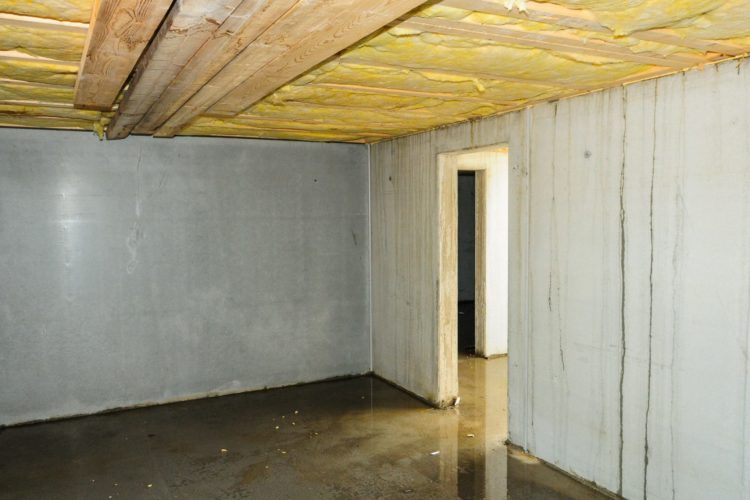Many have asked this particular question, but there isn’t one specific universal answer applicable to all. Each home faces different obstacles and to really find out the root of your problem, you should consult with a field expert. In the meantime, here is some helpful information and the 4 most common reasons for basement water leaks:
- No Drainage in Basement
Our basements are very sensitive to excess water. Because they are directly placed in the ground, they are most vulnerable to floods and leaks. An important thing you should know is that water is very strong and when it accumulates, it builds intense pressure on our home’s foundation.
To relieve this pressure, homeowners invented basement waterproofing. This is a mechanism, largely consisting of sump pumps and weeping tiles, which gathers accumulated water and carries it to a proper disposal area like a sewer or downhill. To summarize, you might have leaks because you don’t have any proper drainage in the basement, or if it has broken parts.
- Broken Sump Pump
By collecting water from the ground, waterproofing mechanisms relieve the foundation from water pressure and prevent floods and leaks. When you don’t have one or a part of it is broken, leaks will start to occur. So maybe the reason why you have leaks is an old sump pump or clogged and detached weeping tiles.
Whatever the problem is, it must be fixed immediately. Some homes don’t have anything broken, but a lack of drainage. For instance, if you live in a large home in a rainy climate, you might need multiple sump pumps with better force and quality.
- Clogged Gutters
This reason always leaves homeowners with a couple of raised eyebrows, but yes, clogged gutters can cause basement leaks. The gutters have one job only: to protect the home and roof from rainwater accumulation. If you haven’t cleaned them in a while, they probably cause your leaks.
Gutters should be cleaned 2 to 3 times a year and after each storm. When they don’t, debris and dirt build up and create massive clogs. If this happens, water won’t have any other alternative besides accumulating near the attic joists and splashing directly on the ground (right next to basement walls).
- Insufficient Backyard Drainage
Besides protecting the basement, we should take care of our backyard as well. Many homeowners decide to install backyard drainage system exactly for this reason. If rain is constantly falling where you live and if your soil is prone to water accumulation, you must take care of it.
We previously mentioned how water accumulates on the ground. Well, that ground is the backyard and its right next to your basement. So maybe you do have basement waterproofing and you still have leaks when it rains. How does this happen?
Besides rainwater, the backyard is in close contact to underground water pathways. When it rains, the levels of these pathways rise and reach the surface. So imagine if heavy rain is falling, water tables are rising and your soil likes to be damp. Put an old concrete into the mix and you are lucky you aren’t facing enormous floods.


